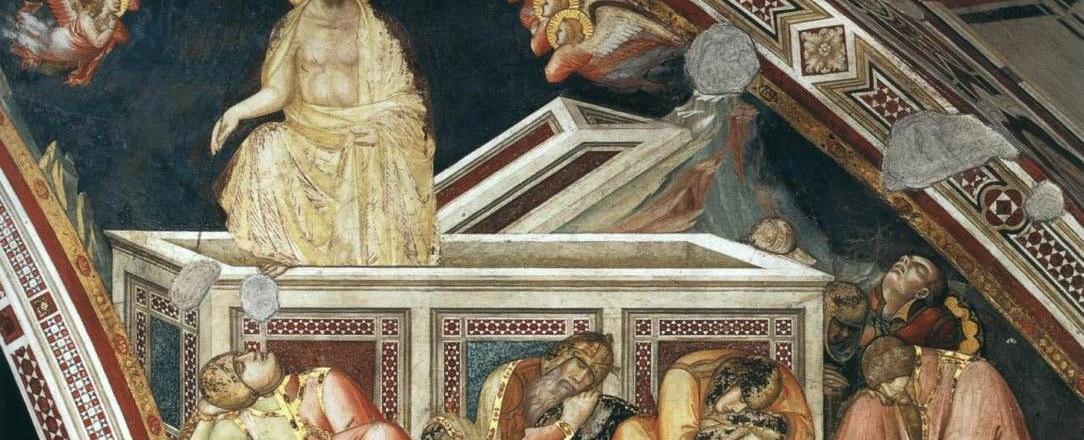Pray with Francis to Mark the Resurrection of Jesus

This blog concludes our Lent 2021 series of reflections on the Franciscan Intellectual-Spiritual Tradition by a variety of women and men Franciscans.
One of Saint Francis’s most extensive, but at the same time, lesser-known writings, is his Office of the Passion. This work was a unique product of his many years of meditating on the major events of Christ’s life—his coming into the world as God’s beloved Son, announcing his Father’s Word with its promise but its rejection by many, culminating in the Paschal Mystery of his suffering, death, and resurrection and how we as believers are incorporated into this mystery.
Expressing deep relationship with Christ
As Francis meditated, different phrases from the psalms and the liturgy of the Church struck him deeply, which in a “stream of consciousness” he pieced together in a collage, creating fifteen new “psalms” that express his deep relation with Christ. The result is not a prayer like the Way of the Cross, in which we follow Christ’s journey as observers, trying to imagine the significance of what was happening; rather, Francis is giving voice to Christ’s own thoughts, feelings, and prayer. Or, at other times, he is voicing our awareness of the working of the Spirit of Jesus in ourselves as his Mystical Body, the Church.
Marking the resurrection of Jesus
And so, as we celebrate Easter, let us join in the joyful Psalm 9 that Francis specifically composed for his Office of the Passion to mark the resurrection of Jesus:
Sing a new song to the Lord
for He has done marvelous deeds.
His right hand and holy arm
have sacrificed his beloved Son.
Making known the Lord’s salvation
These words reprise themes of the Easter liturgy—one immediately thinks of the “new song” that Miriam uttered to celebrate the marvelous Exodus event, and the Exsultet of the Easter Vigil, that Francis as a deacon would have sung: “O love, O charity beyond all telling, to ransom a slave you gave away your Son!”
The Lord has made known his salvation;
In the sight of the nations he has revealed his justice.
On that day the Lord sent his mercy,
and at night his song.
Revealing God’s justice and mercy
These words recall the preaching of the Apostles after the Resurrection (Acts 2) to people from all over the known world who had gathered for the feast; God’s justice is revealed by raising up Jesus, who had heralded God’s coming reign of peace and justice, but was condemned to death. The Resurrection displays God’s mercy in the face of human sin and evil.
This is the day the Lord has made;
let us exult and be glad in it.
Blessed is the one who comes in the name of the Lord,
the Lord is God, and has shown upon us.
Bringing eternal salvation for God’s people
These words echo the major refrain that is repeated throughout the Easter liturgy. The next line recalls Jesus’ triumphant entry into Jerusalem, but now heralded for bringing eternal salvation for God’s people. And again, an allusion to the words of the Exsultet:
Dominic Monti, OFM
Professor of Franciscan Research in the Franciscan Institute of St. Bonaventure University
Dominic V. Monti, OFM, is a Franciscan Friar of Holy Name Province (USA) and currently professor of Franciscan Research in the Franciscan Institute of St. Bonaventure University. He devoted the greater part of his ministry to teaching the History of Christianity, in particular the history of the Franciscan movement. He has contributed two volumes to the Works of St. Bonaventure series and is author of Francis & His Brothers, a popular history of the Friars Minor.

